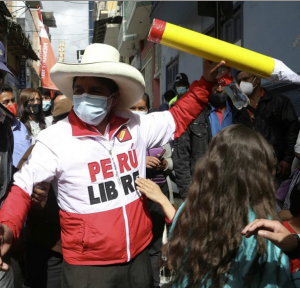Five myths about socialism
Socialism in the United States is prominent in a way it hasn’t been in decades. High-profile left-leaning politicians like Sen. Bernie Sanders (I-Vt.) and Rep. Alexandria Ocasio-Cortez (D-N.Y.) hold up socialist policies as solutions to the ills facing the nation, from the growing political influence of the “top 1 percent” to the lack of universal health care. Meanwhile, critics, including President Trump, say socialism leads inexorably to tyranny and poverty. But the important debate is clouded by many misconceptions. Sign up for a weekly roundup of thought-provoking ideas and debates Myth No. 1 Socialism is a single coherent ideology.
Myth No. 2 Socialism and democracy are incompatible.
Myth No. 3 All socialists want to abolish markets and private property.
Myth No. 4 When socialism is tried, it collapses.
Myth No. 5 Socialism offers a ready-made solution to numerous current problems.
More From The Washington Post (subscription required):




